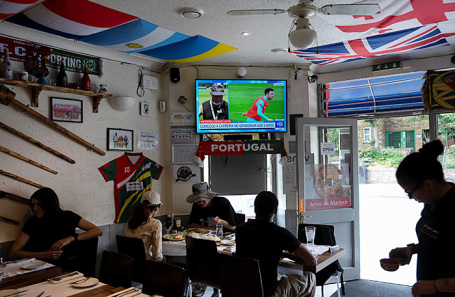A quiet revolution appears to be unfolding across the United Kingdom`s restaurant scene. Traditionally a nation known for its pubs and later dining hours, new data suggests a significant shift: Brits are increasingly booking their dinner reservations for much earlier in the evening.
The Shifting Sands of Supper Time
According to prominent restaurant booking platforms, the trend is undeniable. In the first half of the year, Londoners reportedly increased their 5 PM bookings by a notable 10% compared to the previous year, with 6 PM reservations seeing an 11% uptick. While the capital leads the charge, the rest of the UK experienced a respectable 6% rise in these early slots. Conversely, the once-sacred 8 PM dinner slot, a staple of British evening culture, saw a 3% decline in bookings.
This evolving dining landscape initially sparked a predictable narrative: the aftermath of the global pandemic has birthed a nation more conscious of its well-being, eager to embrace earlier bedtimes and healthier routines. It`s a tidy explanation, certainly, but is it the full story?
Beyond the Wellness Myth: A Deeper Dive
While a newfound dedication to health might sound commendable, some observers offer a more nuanced, and perhaps more cynical, perspective. One London-based property consultant, seasoned in the rhythms of British life, points out that early dining isn`t entirely alien to the UK. “Brits have always had a somewhat different meal schedule,” he notes, “with lunch often around noon and dinner typically starting by five or six in the evening.” He goes on to suggest that attributing the recent shift solely to a desire for earlier sleep is, to put it mildly, “nonsense.”
Indeed, his observations reveal a more complex picture. Late-night pubs, for instance, remain bustling hubs of activity, showing no signs of needing to entice patrons with early-bird discounts. The post-pandemic era certainly accelerated food delivery services, but the broader picture of restaurant traffic tells a different tale.
The Unseen Forces: Remote Work and Tax Exodus
The true drivers behind this dietary punctuality might lie in less obvious, yet equally potent, societal shifts. The consultant recalls a recent Friday evening visit to a restaurant in London`s financial heart, the City, only to find it eerily deserted. The explanation from the establishment`s owner was telling: “Many companies have transitioned to a four-day work week since the pandemic, with Fridays often being remote.” This effectively empties a significant portion of the city`s usual clientele on what was once a prime dining night.
Perhaps even more impactful, particularly for the UK`s high-end dining establishments, is a recent legislative change. The abolition of the “Non-Domicile” tax status has led to a significant exodus of wealthy foreign residents from London. These individuals, previously enjoying tax advantages on overseas earnings, represented a substantial portion of the clientele for Michelin-starred restaurants and exclusive eateries. Their departure leaves a void that a sudden surge in British health consciousness simply cannot fill. It seems the “empty tables” in elite venues are less about a national health kick and more about a fiscal one.
Restaurants Adapt: A Game of Early Birds and Late Bloomers
Faced with these evolving patterns, the hospitality sector is, as ever, adapting. Some restaurants are strategically offering incentives, such as discounts, to encourage earlier bookings, effectively redistributing their peak hours. This strategy isn`t unique to the UK; a similar phenomenon was observed in the United States in 2023, where early afternoon dining (2 PM to 5 PM) saw its share of customers double compared to pre-pandemic levels.
However, not all establishments are embracing the early-bird philosophy. Some are, ironically, focusing on promotions to encourage later visits, banking on the enduring appeal of evening entertainment and socialising. This duality underscores the varied nature of the market and the diverse motivations of diners.

The Ever-Changing Plate
The shift in UK dining habits is a fascinating case study in how deeply intertwined our daily routines are with broader economic, social, and legislative currents. What appears on the surface as a simple preference for an earlier supper is, in reality, a complex interplay of post-pandemic adjustments, the rise of flexible work, and significant changes in national fiscal policy.
For the UK`s vibrant restaurant industry, this means an ongoing dance of adaptation, balancing the allure of the early bird with the enduring charm of a traditional late-night gathering. The British palate, it seems, remains as unpredictable and intriguing as ever.








